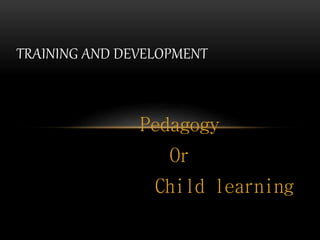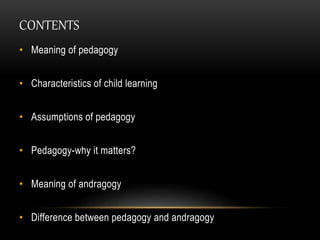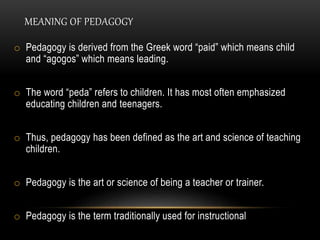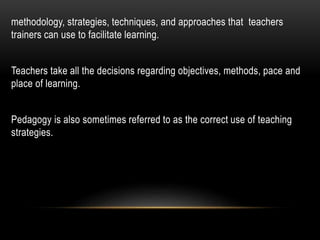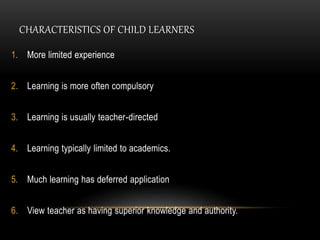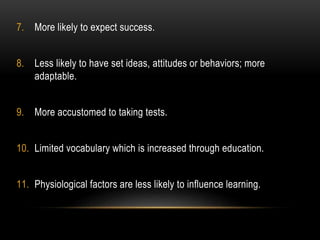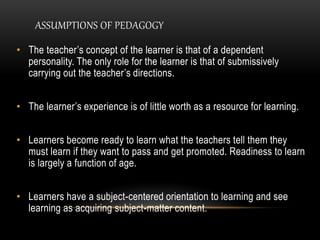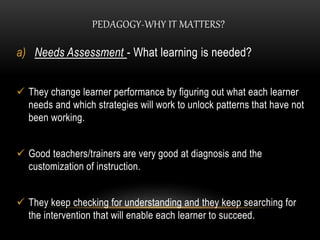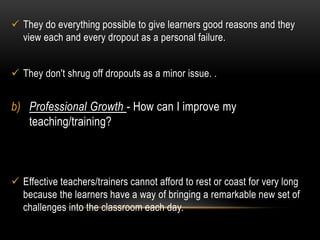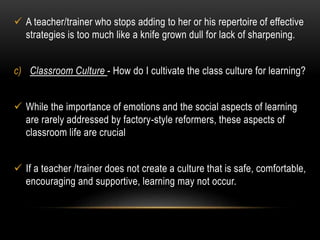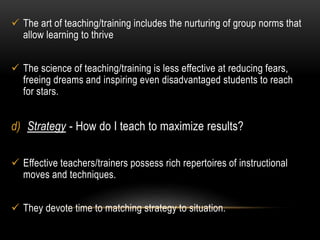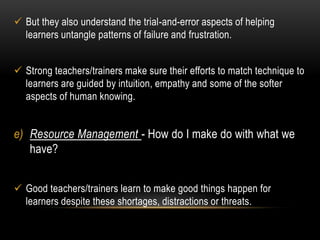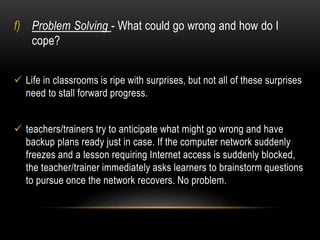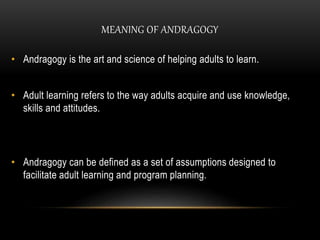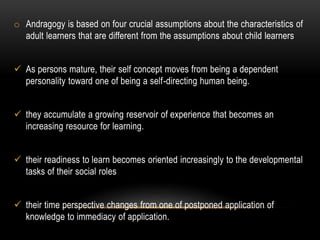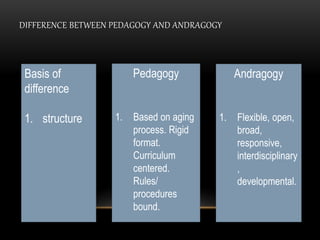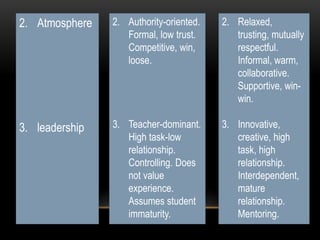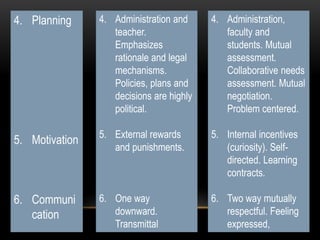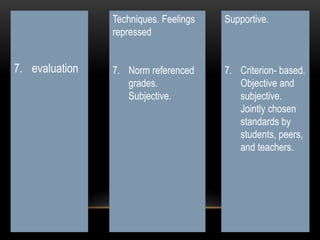Pedagogy refers to the art and science of teaching children and is based on assumptions about child learners being dependent on the teacher, having limited experience, and viewing learning as acquiring knowledge from the teacher. Pedagogy involves teacher-directed learning and evaluation based on grades. Andragogy refers to adult learning and is based on adults being self-directed, having accumulated experience to draw from, and applying knowledge immediately. Andragogy involves flexible, collaborative learning between teachers and students. The key differences between pedagogy and andragogy are that pedagogy is teacher-centered while andragogy is learner-centered, and pedagogy focuses on content transmission while andragogy focuses on process and personal development.
